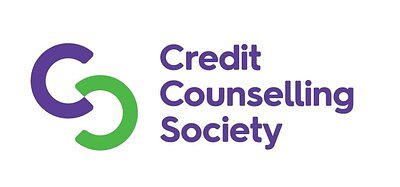
Quebec Debt Levels Spur Credit Counselling Society Expansion
As Quebecers grapple with rising debt, the Credit Counselling Society expands into the province, offering crucial bilingual support and filling a gap in financial literacy resources.
Quebec Debt Levels Spur Credit Counselling Society Expansion
By Debra Allen, Growth Signals
Gatineau, QC – The Credit Counselling Society (CCS) has officially launched operations in Quebec, a move driven by persistently high insolvency rates and a demonstrated need for accessible, bilingual financial support. The expansion, announced earlier this month, comes at a critical time for Quebec households facing increasing financial pressure, and signals a strategic response to a growing provincial crisis.
For years, Quebec has consistently registered higher insolvency rates than the national average. Recent data from the Office of the Superintendent of Bankruptcy reveals that Quebec recorded 34,324 insolvencies between June 2024 and June 2025, representing a rate of 3.94 per 1,000 people – exceeding the national average of 3.63. While overall debt levels have risen across Canada, Quebec's unique economic landscape and linguistic demographics create a specific set of challenges.
“There’s a clear need for increased financial literacy resources in Quebec, particularly for those who prefer to receive support in French,” says a financial advisor with a local community organization. “Many Quebecers are hesitant to seek help if they don’t feel comfortable communicating in English, and the existing resources haven’t always adequately addressed that need.”
CCS’s decision to establish a presence in the province isn’t merely a geographic expansion; it’s a strategic commitment to bridging that linguistic gap. The organization will offer counselling and financial literacy programs in both English and French, ensuring that all Quebecers have access to the support they need.
Filling a Gap in Financial Support
The expansion also highlights a broader trend: the growing reliance on non-profit organizations to fill gaps in government-provided financial support. While federal and provincial programs exist to assist individuals facing financial hardship, they often fall short of meeting the demand. CCS, with its decades of experience and proven track record, is positioned to complement these programs and provide a more holistic approach to financial wellbeing.
“We see ourselves as a partner to government and other community organizations,” explains a spokesperson for CCS. “Our goal is to empower individuals to take control of their finances and build a secure future.”
With annual revenues of CAD 12 million, largely from government grants and donations, CCS has established itself as a leading non-profit credit counselling organization in Canada. Its 4-star rating from Charity Navigator and GuideStar reflects its commitment to financial health and accountability.
A Linguistic Imperative
The province's strong linguistic identity underscores the importance of culturally sensitive financial support. According to Statistics Canada, 94.5% of Quebec residents speak French at home, and a significant portion prefer to conduct financial transactions in their mother tongue. A recent survey conducted by the Financial Consumer Agency of Canada (FCAC) revealed that 60% of Quebecers would be more likely to use financial services if they were available in French.
“Language isn’t just about communication; it’s about trust and cultural understanding,” explains a local economist. “Quebecers are more likely to seek help if they feel understood and respected, and that means providing services in the language they’re most comfortable with.”
CCS recognizes this imperative and has made bilingualism a core principle of its Quebec operations. All counsellors are fluent in both English and French, and all materials are available in both languages.
Addressing Financial Literacy Gaps
While Quebec boasts a highly educated population, financial literacy rates remain slightly below the national average. FCAC data shows that Quebec’s financial literacy score is 6.2 out of 10, compared to the national average of 6.5. This gap underscores the need for targeted financial literacy programs that address the specific needs of Quebec residents.
CCS plans to offer a range of programs, including debt management workshops, budgeting seminars, and credit counselling sessions. These programs will be delivered in both English and French, and will be tailored to the unique challenges faced by Quebec households.
“We’re not just about crisis intervention; we’re about prevention,” says a CCS counsellor. “We want to equip people with the knowledge and skills they need to make informed financial decisions and avoid falling into debt in the first place.”
Looking Ahead
The Credit Counselling Society’s expansion into Quebec represents a significant investment in the financial wellbeing of the province’s residents. By providing accessible, bilingual support and addressing the gap in financial literacy resources, CCS is positioned to make a meaningful impact on the lives of countless Quebec families. The success of this expansion will likely serve as a model for other non-profit organizations seeking to address similar challenges in diverse communities across Canada.
As Quebec continues to navigate economic uncertainties, the role of organizations like CCS will become increasingly critical in ensuring that all residents have the opportunity to achieve financial security and build a brighter future.
